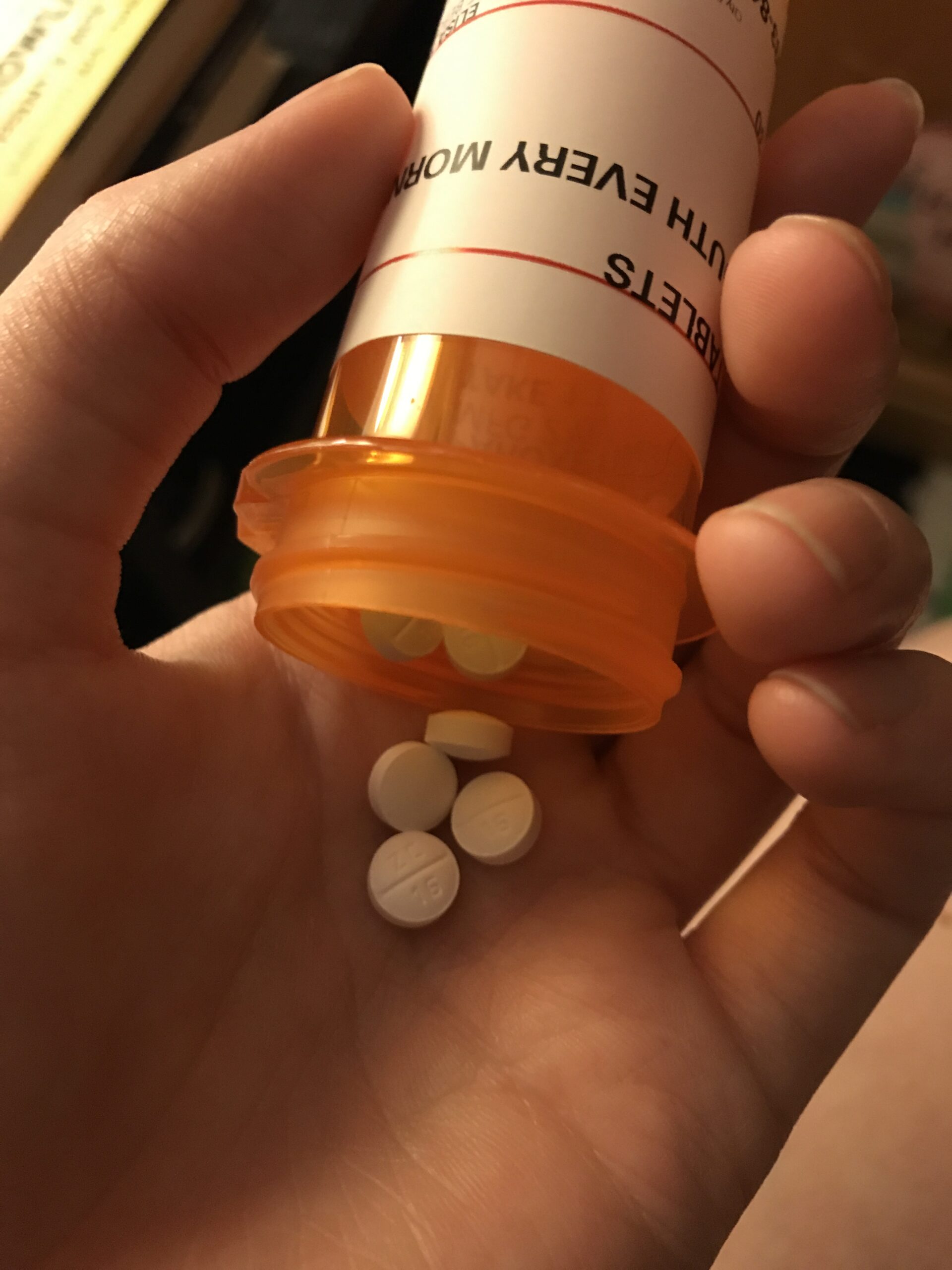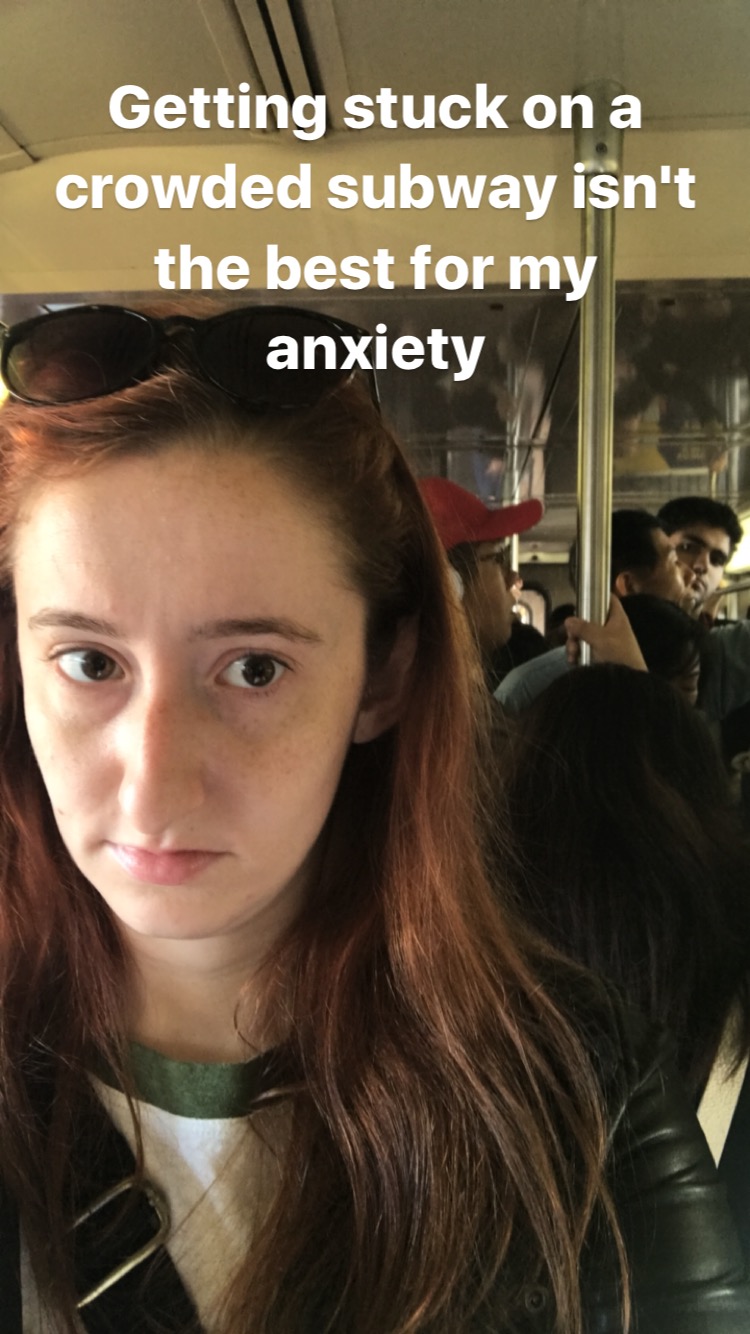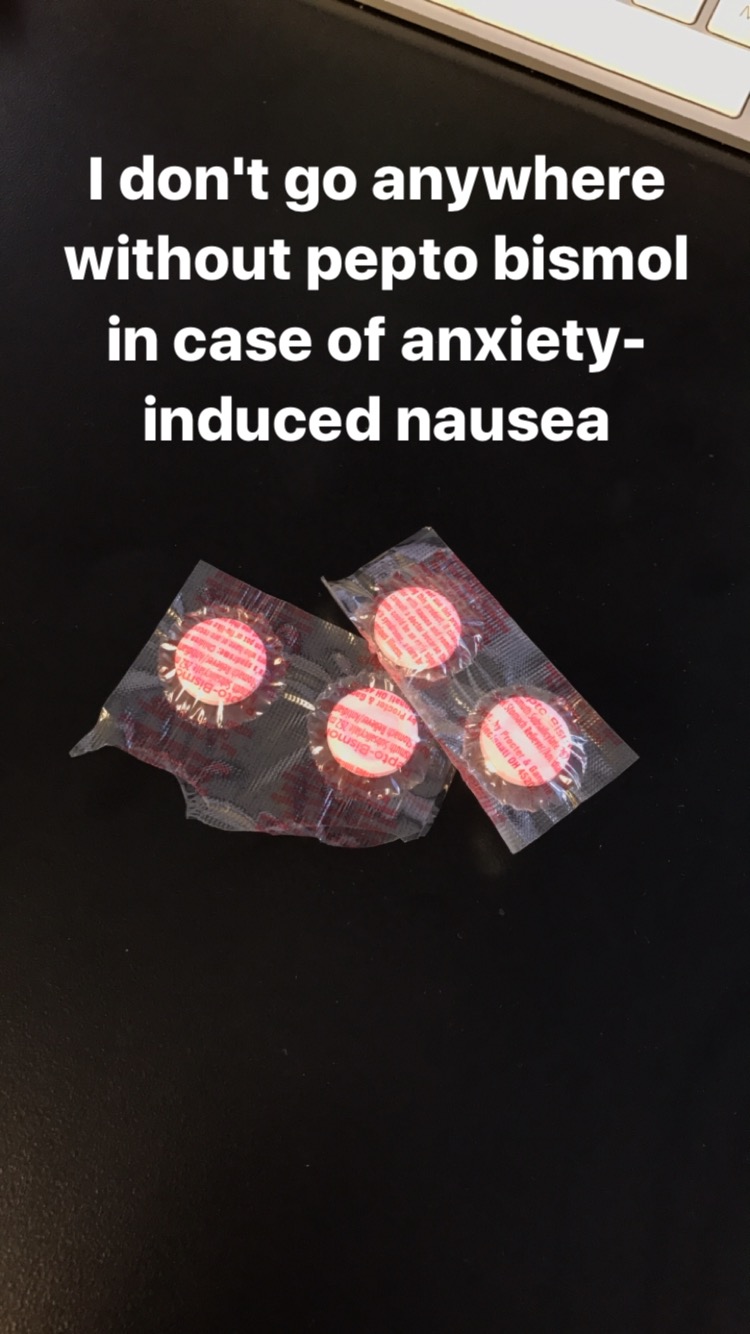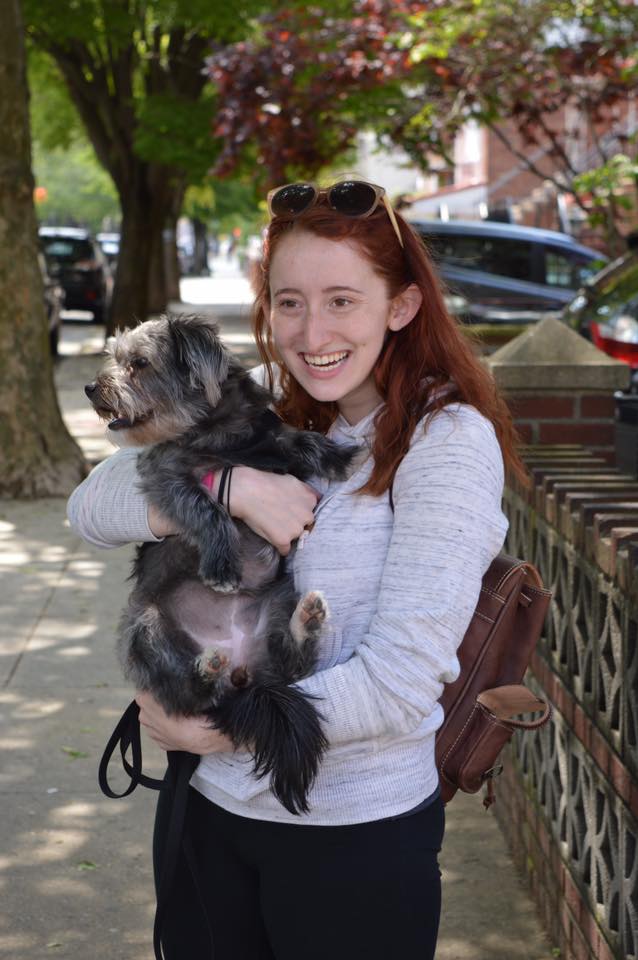When I was a freshman in high school, I suddenly started feeling sick every day. It seemed to be completely out of the blue — there was no noticeable trigger for it.
My parents and I immediately thought it might be celiac disease. My grandmother has celiac, and it can be a genetic disorder, often skipping generations. I started cutting out all gluten from my diet (which was extremely challenging, as I eat pasta at least once a day).
Six weeks after eliminating gluten, though, I still felt sick. After one extremely rough day at school, where I ended up going home early due to nausea, I found myself in my doctor's office. I was in tears — I didn't think I could keep dealing with what I was going through.
After speaking to my doctor for a few minutes, he told me he didn't think what was going on had anything to do with food. "You have anxiety," he told me, before setting me up with my very first therapy appointment.
A few months later, my daily nausea was gone — it seemed therapy had done the trick. It wasn't until five years later that I was diagnosed with generalized anxiety disorder.
What Is Generalized Anxiety Disorder?

According to the Anxiety and Depression Association of America, "generalized anxiety disorder (GAD) is characterized by persistent and excessive worry about a number of different things."
Around 6.8 million adults in the US suffer from GAD in any given year. That's just over 3% of the population.
Symptoms Of Generalized Anxiety Disorder

Everyone with GAD experiences slightly different symptoms, as triggers depend on the individual.
Some of the mental symptoms I experience include difficulty concentrating, excessively worrying (and worrying about excessively worrying), indecisiveness, compulsive behaviors, inability to relax, and more.
Some of the physical symptoms I experience include fatigue, muscle tension, nausea, diarrhea, vomiting, sweating, and panic attacks.
My Experience With GAD

Teenage years are known to be a turbulent time in life for most people — and I was no exception.
On top of dealing with puberty and adolescence, I was also a highly competitive gymnast with 25 hours of practice each week.
Additionally, I was very focused on schoolwork and my grades. Though it doesn't seem like such a big deal now, having a 4.0 GPA was essential to me in high school.
All of this contributed to the anxiety that led me to my doctor's office, and then to therapy.
My Diagnosis

But like I said, I wasn't diagnosed with generalized anxiety disorder until I was a sophomore in college.
So what happened?
When I started my second year of college, I was definitely going through the "sophomore slump." I wasn't as close with my friends from freshman year, none of my classes were that exciting, I was far from my family, and I felt like all the new and fun college experiences were behind me.

Everything came to a head one day; the stress of acing my classes and working two jobs got the best of me, and I had my first full-blown panic attack.
For the next month, I couldn't eat, I couldn't sleep, and I couldn't function properly. I unintentionally lost 10 pounds. I was cold all the time, I always felt like I was seconds away from vomiting, and I couldn't be alone.
The photo above might look like a regular college student enjoying the fall weather, but it's not. My mom was visiting for parents' weekend, and I spent the entire time crying. What you can't see in the photo above is that in the hour we spent walking around "enjoying" the scenery, I spent most of it with tears streaming down my face.

I went to therapy at least once a week, and sometime before Thanksgiving I was diagnosed with generalized anxiety disorder.
It was scary, but putting a name to my experience actually made me feel less like a freak.
This photo, taken on Thanksgiving day, came just hours after I cried myself to sleep. The day before Thanksgiving was really rough for me — and I'd rushed to an emergency therapy appointment just before my friend picked me up to go to her house for the holiday.
Medication

For a while, I didn't want to be medicated for my anxiety — I thought if I just tried harder, I could overcome it on my own.
Eventually, I realized that I take painkillers when I have a headache, so why wouldn't I take medication for my anxiety?
Mental disorders, like anxiety, are caused by chemical and hormonal imbalances in the body. Some people are able to manage them without medication, but other people need assistance from medication.
I worked with my therapist and a psychiatrist to determine the best medication for me, and I ended up with a prescription for an antidepressant that's used to treat anxiety.

It's been five years since I was diagnosed with GAD, and it's still something I struggle with almost every day.
I have good days and bad days, and I know my triggers now, but every single time my anxiety creeps up it's still a huge challenge for me to deal with it.
GAD is something that I will deal with for the rest of my life, but that doesn't mean it will always present itself the same way.

In the photo above, taken after months of only being able to eat rice, dry cereal, and saltine crackers, I look like any college student getting ready for a night out. It might be obvious that I was pretty thin, but I had actually lost 15 pounds since the year before — almost all of it because of my anxiety-induced inability to eat.
One of the complications with GAD is that it often coexists with other mental health issues, like depression, obsessive-compulsive disorder, substance abuse, panic disorder, and other types of anxiety.
People with GAD (and other forms of anxiety) may have certain phobias that they obsess over as well.

I have emetophobia, an irrational fear of vomiting, which definitely affected my physical symptoms and ability to function.
During the times when my GAD symptoms were most severe, I also had minor depression (which isn't unusual for people with GAD) — I felt extremely hopeless that my anxiety would ever go away.

If you think you or someone you love might have GAD, talk to your primary care doctor — they can set you up with a counselor, therapist, psychologist, or psychiatrist. It is definitely possible to live a happy, healthy, and fulfilling life with GAD — it sometimes just takes a little help to get there.
And to anyone out there struggling with GAD: you are strong and you will make it through. It's OK to feel the way you're feeling. Just remember, you made it through yesterday, and you can make it through today.

Please SHARE this article to raise awareness about GAD and to help reduce the stigma surrounding mental health!




